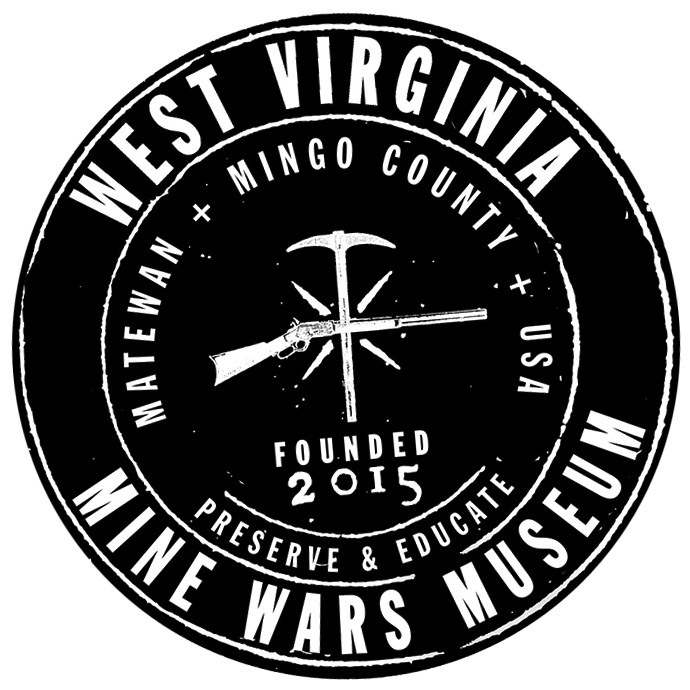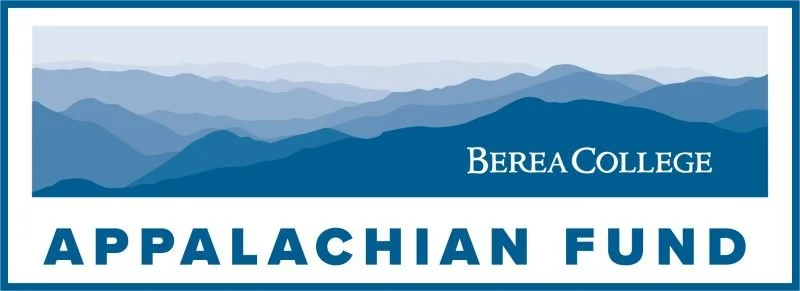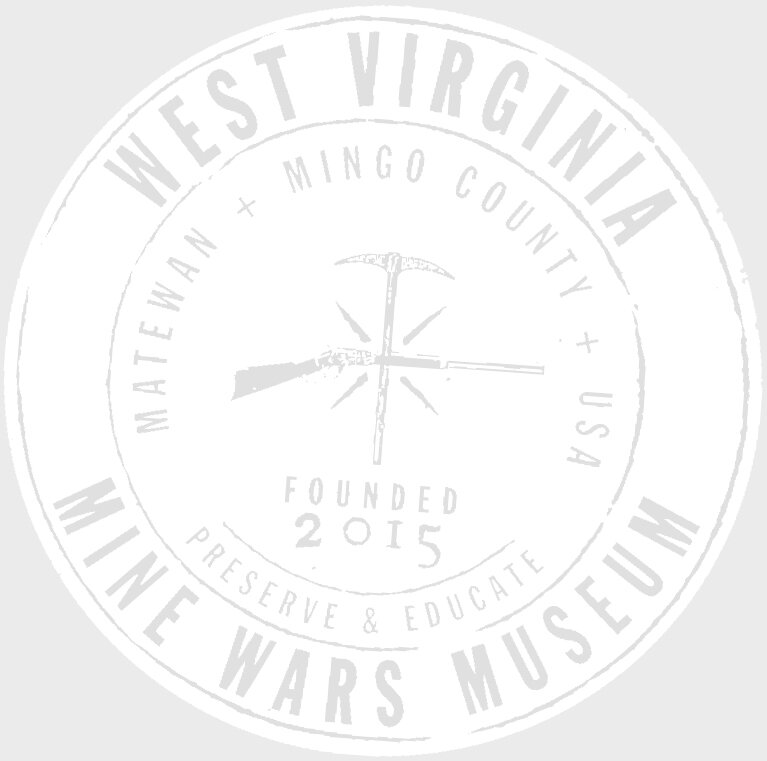Miner's Lunch Pail (MW.0172)
Gift of Sandra & Fred Barkey, Collection of the West Virginia Mine Wars Museum
““One of the first lessons I think I ever learned from Fred is that labor history is not just the history of particular organizations or unions. It’s anything to do with the working class. It could be home life, it could be communities, leisure time, it could be all sorts of things. And he had this expansive notion of what labor history was.” ”
Coal Miner Statue (MW.0116)
Gift of Sandra & Fred Barkey,
Collection of the West Virginia Mine Wars Museum
The West Virginia Mine Wars Museum is honored to introduce a new collection featuring the personal archives of the late Dr. Frederick Barkey, a celebrated labor historian, public storyteller, and people’s scholar. As a dedicated educator, it is fitting that Dr. Barkey’s personal papers, primary source materials, books, folk art, and artifacts will continue bringing stories of the Mine Wars and labor history writ large to the public. To further contextualize the relics and materials in Dr. Barkey’s collection, we also share three oral history interviews with Dr. Barkey’s wife and mentees. Together, these interviews display how Dr. Barkey’s work has influenced a new generation of scholarship, union activism, and public history initiatives in Appalachia.
This collection could not have been made possible without Sandra Barkey, an influential educator and advocate in her own right. Starting out as a special education teacher during a time when the state and the country lacked institutional support for her students, Sandra was advocating for some of West Virginia’s most vulnerable children in a climate of severe discrimination the school system. Over the course of her career, she was a part of implementing important legislative and public initiatives to better serve her students.
Her father, Charles Gordon Holstein, was a miner in Coalburg, West Virginia and was “interested in unions,” as Mrs. Barkey put it. Holstein went on to play a critical role in the United Mine Workers of America’s organizing drive and the 1921 march on Blair Mountain. Holstein left West Virginia when the governor sought charges against the union miners, leading Sandra to be born in Gary, Indiana. Soon after, she moved to Chesapeake, in Kanawha County, when her mother returned home.
While Mrs. Barkey did not grow up talking with her father about Blair Mountain–she cites her gender as a primary reason such stories were withheld–later in life, when she and Dr. Barkey would visit with her father, the two of them would sit and talk about Holstein’s role in the miners’ march. As Dr. Barkey explains in Working Class Radicals, it was the disconnect between what he learned from Sandra’s father about labor in West Virginia compared to what high school and college textbooks had to say that led him to study workers’ political activity.(1)
Coal Miner Figurine (MW.0122)
Gift of Sandra & Fred Barkey,
Collection of the West Virginia Mine Wars Museum
Dr. Barkey’s work was people focused, covering topics from socialist organizers in Wheeling, to glassworkers in Clarksburg and South Charleston, to coal miners’ engagement in labor struggle. His research on the Mine Wars relied on firsthand accounts from the people who experienced these events themselves. As a professor and graduate student mentor, Dr. Barkey trained his students in oral history methods. Together, he and his students would collect stories from elder miners themselves when possible, as well as with their families. Oftentimes, these families would share relics and art with Dr. Barkey and his students, such as figurines cast in resin blackened with bituminous coal dust or union swag. Dr. Barkey would also collect old mining tools to bring in for demonstrations with public school students. Several of these artifacts, art pieces, and tools are now available to the public through the new collection.
Dr. Barkey’s collection celebrates the vital role that folk art and storytelling play in preserving and sharing the experiences of working class communities. This emphasis on material culture is representative of his overall approach to labor history. As his mentees Chuck Keeney and Gordon Simmons describe, Dr. Barkey was influenced by ‘new labor historians’ like E.P. Thompson and Dr. Barkey’s own mentor, David Montgomery. These scholars looked beyond top-down, institutional accounts and instead focused on cultural expressions, social forces like immigration, and workers’ own political initiatives in order to understand workers’ lives. Museum visitors will now be able to explore these threads of thought via access to over 200 of Dr. Barkey’s own books spanning topics in Appalachian Studies and national labor history.
From conversations with Dr. Barkey’s former students, it is evident that Dr. Barkey was a dedicated mentor who was always generous in sharing encouragement and resources with people interested in West Virginia’s labor history. Chuck Keeney shared that when he was a graduate student, during their first meeting Dr. Barkey gestured to his personal collection of papers, books, and artifacts and told Keeney, “‘Anything you want, go through it.’” Although there is a new generation of history keepers, researchers, and activists who will not get the chance to meet him, we hope that his new collection will keep this spirit of Dr. Barkey’s generosity alive.
- Faith Leone
Dr. Fred Barkey’s artifacts, art pieces, tools, and other objects from his collection can be browsed in this online exhibit.
Dr. Barkey’s also gifted over 200 books on labor, history, coal, and union organizing to the museum. Visitors to the museum can browse these books in our Reference Library:
As resources become available to us, the museum will move to the next phase of digitizing his extensive collection of documents and paper materials, but at the moment those materials have not been fully cataloged.
All interviews conducted by Faith Leone in May and August of 2024.
Transcripts of each interview can be downloaded.
Leather Mining Belt (MW.0201), Gift of Sandra & Fred Barkey, Collection of the West Virginia Mine Wars Museum
(1) Barkey, Frederick and Gordon Simmons. "A Forty Year Retrospective: Dr. Fred Barkey interviewed by Gordon Simmons." In Working Class Radicals: The Socialist Party in West Virginia, 1898-1920 by Frederick A. Barkey, 171-177. Morgantown: West Virginia University Press, 2012.
Sandra Barkey is a retired special education teacher with 41 years of service to Kanawha County schools. She is active with the East End Resource Center Senior Program and serves on the board of the South Charleston-based Community Access, Incorporated, which provides resources and support for students with disabilities.
Gordon Simmons is a union organizer, President of the West Virginia Labor History Association, and a former student of Dr. Barkey. He is the recipient of the 2018 Red Bandana Award for The History Keeper. His forthcoming book focuses on public sector workers in West Virginia.
Chuck Keeney is a history professor, a founding member of the West Virginia Mine Wars Museum, and former President of Friends of Blair Mountain. He is a former mentee of Dr. Barkey and the author of The Road to Blair Mountain: Saving a Mine Wars Battlefield from King Coal (2021).
Faith Leone is an anthropologist from West Virginia and doctoral student at University of Michigan. Her dissertation research seeks to understand how social memories of work and labor are shaping ideas about class, race, and solidarity in Appalachia.
Calcium Carbide Can (MW.0165)
Gift of Sandra & Fred Barkey,
Collection of the West Virginia Mine Wars Museum
This collection is made possible by the generous support of
As resources become available to the museum, we will move to the next phase of digitizing Dr. Barkey’s extensive collection of documents and paper materials, but at the moment those materials have not been cataloged:





